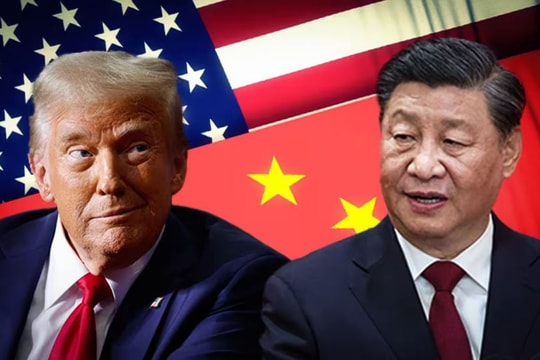US-China trade war: New tariffs come into effect
The new tax rate applied to 110 billion USD worth of Chinese goods and 75 billion USD worth of American goods will take effect from September 1 as previously announced by both sides.
According toBloombergThe US plan to increase tariffs on $300 billion worth of goods imported from China is still taking place as announced by US President Donald Trump, despite criticism from analysts and US businesses.
About 110 billion USD worth of Chinese garments, shoes, sandals, and groceries exported to the US will be subject to a 15% tax, instead of 10%, starting today (September 1). The list of taxed products is up to 112 pages. Other items such as phones, computer screens, computers... will be subject to a 15% tax starting October 1.
Meanwhile, China’s retaliatory tariffs of 5% to 10% on $75 billion worth of US goods also took effect on September 1. Crude oil is also subject to tariffs, with an estimated 1,700 out of 5,078 US-origin items being subject to the new tariffs. The remaining items will be subject to a 10% tariff from December 15.
The decision comes as US-China trade negotiators are scheduled to meet this month. "We're going to win this fight," Trump told reporters at the White House on Friday.
JP Morgan estimates the latest tariffs on Chinese goods will hit consumers hard and cost the average American household $1,000 a year. More than 160 industry groups have condemned the new US tariffs and the escalation of the trade war.
|
Chinese President Xi Jinping and US President Donald Trump.Photo: AP |
More than 160 business associations in the US wrote a letter to Mr. Trump, condemning this tax increase plan. Not only was this proposal not accepted, Mr. Trump also criticized them for not proactively responding to trade policies that he considered "aimed at governing unfair players."
Still, forecasts of declining revenue for U.S. companies in the second half of the year show the impact of the trade war. American Outdoor shares fell 22% at the close of trading on Friday. Best Buy and Abercrombie & Fitch Co. forecast revenue declines of 8% and 15%, respectively, due to sales declines caused by trade war tariffs.
In public hearings held by the Office of the US Trade Representative in June, US companies warned the Trump administration that the new tariffs would increase costs and disrupt supply chains.
"Increased tariffs on Chinese goods to the US have pushed importers to compete to find alternative sources of supply. This has increased costs and product prices," said Bryan Wolfe, representative of Ascena Retail Group.
Businesses and investors are increasingly concerned that a prolonged trade war could fuel the longest expansion in history, with the first key recession signal in more than a decade emerging in mid-August.
Elsewhere, US stocks had a volatile day before closing Friday as investors weighed the impact of import tariffs that will hit American families more deeply. US consumer sentiment has fallen to its lowest level since the start of Mr. Trump’s term. The confidence index, according to the University of Michigan, fell more than 8% in a month, from 98.4% in July to 89.8% in August.





